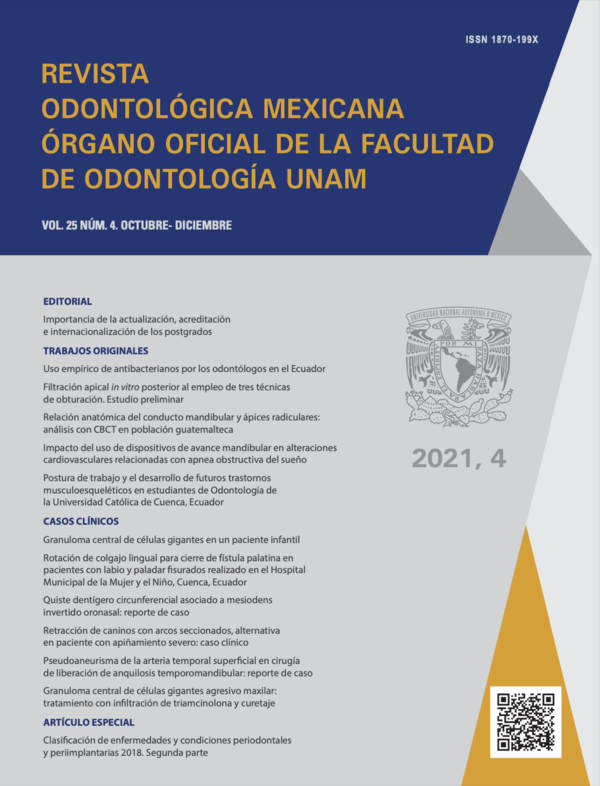Impacto del uso de dispositivos de avance mandibular en alteraciones cardiovasculares relacionadas con apnea obstructiva del sueño
Contenido principal del artículo
Resumen
Introducción: las patologías cardiovasculares tienen elevada prevalencia. Asimismo, la prevalencia de trastornos respiratorios de sueño en pacientes con fallo cardiaco crónico es muy elevada. Objetivos: analizar el impacto del uso de dispositivos de avance mandibular (DAM) en pacientes con historia de fallo cardiaco previo. Material y métodos: se realizó una búsqueda bibliográfica electrónica con los términos MeSH «occlusal splints», «sleep apnea, obstructive» y «heart failure». Resultados: la severidad del trastorno respiratorio de sueño varía de acuerdo con la severidad de la patología cardiaca existente. Discusión: los efectos nocivos inducidos por la apnea obstructiva del sueño (AOS) en el sistema cardiovascular pueden implicar dos componentes: hipoxia intermitente crónica durante la apnea o hipopnea y grandes esfuerzos inspiratorios. Esto sobrecarga el miocardio alterando su estructura y función. El tratamiento con DAM reduce la gravedad de la AOS y aumenta la saturación de oxígeno en pacientes con fallo cardiaco congestivo. Además, al mantener las vías respiratorias superiores libres, el DAM reduce la presión intratorácica. Conclusiones: la prevención de complicaciones cardiacas en pacientes con AOS está relacionada con la prevención de eventos respiratorios.
Detalles del artículo
Citas en Dimensions Service

Revista Odontológica Mexicana por Universidad Nacional Autónoma de México se distribuye bajo una Licencia Creative Commons Atribución-NoComercial-SinDerivar 4.0 Internacional.
Basada en una obra en http://revistas.unam.mx/index.php/rom.
